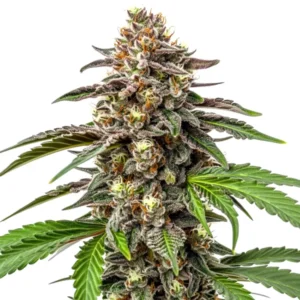
How Cannabis Oil Helps with MS: Pain Relief, Muscle Control & More
Multiple Sclerosis and Cannabis Oil
What Is Multiple Sclerosis and How Does It Affect the Body?
Cannabis Oil for MS Treatment: Multiple sclerosis is a chronic autoimmune disease that targets the central nervous system, leading to inflammation and damage to the myelin sheath, the protective covering of nerve fibers. This degradation disrupts communication between the brain and the body, causing muscle weakness, fatigue, impaired coordination, chronic pain, vision problems, and cognitive difficulties. The severity and progression of MS differ widely among individuals, with some experiencing sporadic flare-ups while others endure a gradual worsening of symptoms.
MS is classified into different types, including relapsing-remitting MS (RRMS), which involves episodes of worsening symptoms followed by periods of partial recovery, and progressive forms like primary progressive MS (PPMS) and secondary progressive MS (SPMS), where symptoms gradually intensify over time. The unpredictability of MS makes symptom management crucial, leading many patients to explore alternative treatments like cannabis oil.
Recommended Strains
CBD Cheese (1:1)
|
|
CBD | 10% (Medium) |
|
|
Type | CBD Feminized |
|
|
Yield | High |
|
|
Phenotype | 40% Indica / 60% Sativa |
Auto CBD Amnesia
|
|
CBD | 10% – 12% (Medium) |
|
|
Type | CBD Autoflowering |
|
|
Yield | Medium |
|
|
Phenotype | 50% Indica / 50% Sativa |
The Function of the Endocannabinoid System in MS
The endocannabinoid system (ECS) is a complex cell-signaling network that plays a key role in regulating physiological functions such as pain perception, inflammation, immune response, and neuroprotection. The ECS consists of endogenous cannabinoids (endocannabinoids), receptors (CB1 and CB2), and enzymes responsible for their breakdown.
In MS patients, disruptions in the ECS can contribute to heightened inflammation, increased pain sensitivity, and impaired muscle function. Cannabinoids found in cannabis oil, such as cannabidiol (CBD) and tetrahydrocannabinol (THC), interact with ECS receptors to help restore balance, potentially reducing symptoms like spasticity, neuropathic pain, and fatigue. Research suggests that cannabinoids may enhance neuroprotection by reducing oxidative stress and inflammation, which are key contributors to MS progression.
How Cannabis Oil Interacts with MS Symptoms
Cannabis oil contains cannabinoids that bind to CB1 receptors in the central nervous system and CB2 receptors in the immune system. These interactions may help modulate immune response, decrease inflammatory cytokines, and improve nerve signaling. THC primarily activates CB1 receptors, leading to pain relief and muscle relaxation, while CBD interacts with CB2 receptors to suppress inflammation and support neuroprotection.
Beyond direct ECS interactions, cannabis oil may influence other neurological pathways, including serotonin and dopamine systems, which regulate mood, pain perception, and motor control. This multifaceted approach suggests that cannabis oil could provide relief for MS patients by addressing multiple symptom pathways simultaneously.
Promos & Deals
Potential Benefits of Cannabis Oil for MS Patients
Can Cannabis Oil Reduce Muscle Spasms and Stiffness?
Spasticity, characterized by involuntary muscle contractions and stiffness, is one of the most challenging symptoms of MS. Studies have shown that cannabis oil may help reduce spasticity by targeting CB1 receptors in the motor control regions of the brain. THC is particularly effective in decreasing muscle rigidity, while CBD contributes to muscle relaxation without psychoactive effects.
Patients who have incorporated cannabis oil into their treatment plans have reported improvements in mobility, reduced discomfort, and enhanced flexibility. Cannabis-based medications like Sativex, an oral spray containing THC and CBD, have been approved in several countries for MS-related spasticity treatment.
Managing MS-Related Pain with Cannabis Oil
Chronic pain, often due to nerve damage (neuropathic pain) and inflammation, is a persistent issue for MS patients. Cannabis oil offers an alternative to opioid-based painkillers by interacting with CB1 receptors in pain-processing regions of the brain and spinal cord. THC and CBD work together to alter pain perception, potentially reducing discomfort without the risks of dependency associated with conventional pain medications.
Additionally, the anti-inflammatory properties of CBD may help alleviate pain by reducing immune system overactivity, a primary driver of MS symptoms. Some MS patients also report that cannabis oil enhances the effectiveness of physical therapy and rehabilitation exercises by decreasing muscle stiffness and pain, allowing for more comfortable movement.

The Role of CBD and THC in Neurological Health
Both CBD and THC have neuroprotective properties that may benefit MS patients. CBD is a known antioxidant and anti-inflammatory agent that protects nerve cells from further damage. THC, in addition to its pain-relieving effects, stimulates the release of dopamine, which can help improve mood and cognitive function.
The synergy between CBD and THC, known as the entourage effect, may provide a more comprehensive approach to MS symptom management. While CBD reduces inflammation and modulates immune activity, THC contributes to muscle relaxation, appetite stimulation, and mental well-being. Patients often experiment with different ratios of CBD to THC to find the optimal balance for their symptoms.
Can Cannabis Oil Help with MS-Related Fatigue and Sleep Issues?
Fatigue is a debilitating symptom of MS, affecting daily activities and overall well-being. Cannabis oil may help by promoting relaxation and improving sleep quality. CBD is known for its calming effects, reducing anxiety that can contribute to sleep disturbances. THC, in small doses, can aid in falling asleep faster and staying asleep longer.
By alleviating pain, muscle spasms, and nighttime discomfort, cannabis oil may allow MS patients to achieve deeper, more restorative sleep. Improved sleep, in turn, can help combat daytime fatigue, leading to enhanced energy levels and better cognitive function.
Risks and Considerations of Using Cannabis Oil for MS
Possible Side Effects and How to Minimize Them
While cannabis oil has potential benefits, it may also cause side effects. Common side effects include:
- Dizziness or lightheadedness
- Dry mouth
- Drowsiness or fatigue
- Increased heart rate (with high THC doses)
- Altered mood or paranoia (in THC-sensitive individuals)
To minimize side effects, patients are advised to start with a low dose and gradually increase as needed. Choosing a CBD-dominant oil may reduce the likelihood of psychoactive effects while still providing symptom relief.
Interactions Between Cannabis Oil and MS Medications
Cannabis oil can interact with other medications, including immune-modulating drugs, muscle relaxants, and painkillers. CBD is known to inhibit certain liver enzymes responsible for drug metabolism, potentially increasing the effects of prescription medications. Patients should consult their healthcare provider before incorporating cannabis oil into their treatment regimen.
Finding the Right Dosage for MS Symptom Management
The optimal cannabis oil dosage varies depending on symptom severity and individual response. Some patients benefit from microdosing throughout the day, while others find relief with a higher evening dose. Keeping a symptom journal can help track the effectiveness of different dosages and formulations.
Best Cannabis Oil Products for MS Treatment
Full-Spectrum vs. Broad-Spectrum vs. CBD-Isolate Oils
- Full-Spectrum Oil: Contains all cannabinoids, including THC, offering maximum therapeutic benefits.
- Broad-Spectrum Oil: Retains multiple cannabinoids and terpenes but excludes THC, making it ideal for patients avoiding psychoactive effects.
- CBD-Isolate Oil: Contains only CBD, suitable for patients who require THC-free options.
How to Choose a High-Quality Cannabis Oil for MS
Patients should look for:
- Organic, pesticide-free hemp sources
- CO2 extraction methods for purity
- Third-party lab testing to verify cannabinoid content and safety
Recommended Consumption Methods for MS Patients
- Sublingual tinctures: Fast absorption under the tongue
- Capsules: Long-lasting effects
- Edibles: Slow onset but extended relief
- Topicals: Direct relief for muscle pain and stiffness

FAQs About Cannabis Oil for MS Treatment
How long does it take for cannabis oil to relieve MS symptoms?
The time cannabis oil takes to relieve MS symptoms depends on the consumption method. Sublingual oils typically work within 15-45 minutes, while edibles may take 1-2 hours. Topicals provide localized relief within 30 minutes. Consistency is key, and patients may experience greater benefits with regular use. Individual response varies, so finding the right dosage is essential.
Is cannabis oil safe for long-term use in MS patients?
Cannabis oil is generally well-tolerated for long-term use, but regular monitoring by a healthcare provider is recommended. While CBD is non-psychoactive and considered safe, prolonged THC use may cause dependency or cognitive effects in some individuals. Adjusting dosages based on symptom severity and response can help ensure long-term safety and efficacy. Always choose high-quality, lab-tested products.
Can cannabis oil slow the progression of multiple sclerosis?
While cannabis oil does not cure MS, studies suggest it may have neuroprotective properties that could help slow disease progression. Its anti-inflammatory and antioxidant effects may protect nerve cells from further damage. More research is needed, but preliminary findings indicate that cannabis oil, particularly CBD, may support long-term neurological health when used alongside conventional MS treatments.




















